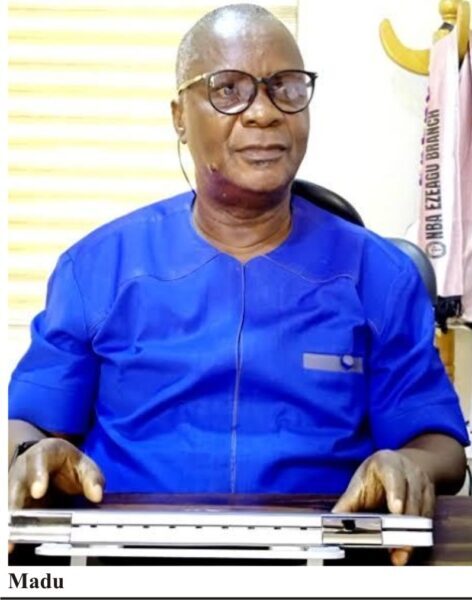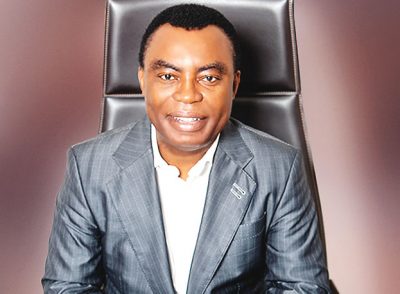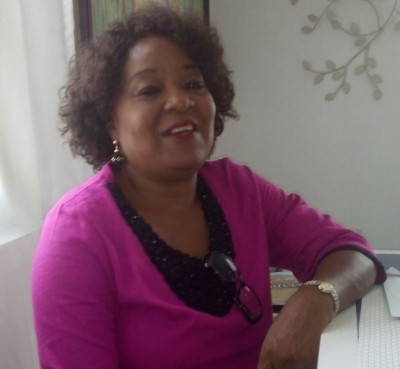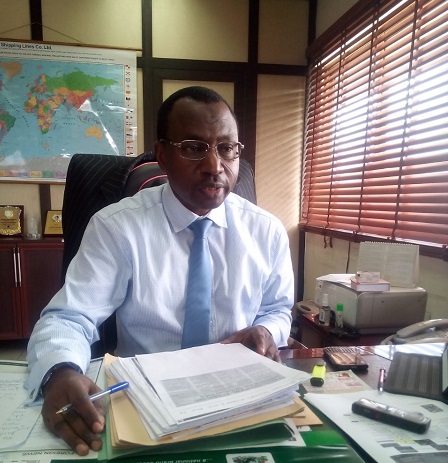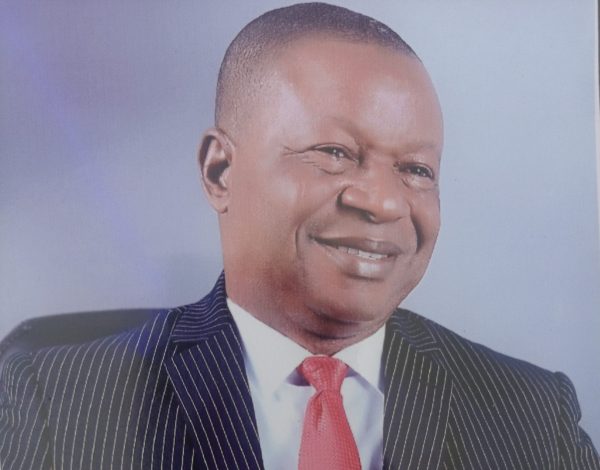We Placed 500 Nigerians Onboard Vessels In Two Weeks – Dakuku

The Director General of the Nigerian Maritime Administration and Safety Agency (NIMASA) Dr. Dakuku Peterside recently had a media parley with the League of Maritime Editors and Publishers (LOMEP). He seized the opportunity to roll out some achievements of the agency under his leadership, revealing the agency’s strategic plans for the future and the crucial role of the media. Enjoy it:
Introduction
If people have nothing to look forward to they wouldn’t go along with you. They go along with you when they understand the vision and the benefits of the vision. So, communication is critical if you must achieve the vision. This applies to the maritime industry the same way it applies in any other sector. Thank you for the kind words you have used concerning NIMASA. You said that this meeting would be a testimony of the rebranding and results that have taken place in NIMASA.
We have taken deliberate steps to reform our maritime administration because we understand that maritime sector is international. It isn’t a local industry. We are dealing with an international audience, our standards are international just as our transactions are international. We are assessed by global best practices so we are determined to reposition the agency to take a new path. Thank you also for the commendation on the significant drop of piracy in the Gulf of Guinea (GoG). It isn’t just a product of our effort but the collective effort of all players who operate in the sector; NIMASA, Nigerian Navy, Nigerian Ports Authority (NPA) and every stakeholder that is working in the industry. Going forward, you would observe more reduction in the cases of piracy and maritime crime. Nobody can talk about serious development in the maritime sector if we continue to have maritime crime and piracy within our domain. To that extent we have put in place a number of things.
Anti-Piracy Bill
In the next few weeks, the House of Representatives would pass the Anti-Piracy bill. It has gone through the second reading and the House has gone through it clause by clause. What is left is the final reading. We expect that it would be passed by concurrence by the Senate and I think that we have made remarkable progress. When the Anti-Piracy bill is passed into law, it would give us the legal teeth to combat maritime crime and piracy.
Deep Blue Project
We have been misrepresented in the media about the Deep Blue Project. The Deep Blue Project involves the acquisition of critical maritime assets including fast patrol boats, intervention aircrafts, special mission helicopters, a Command and Control Center, and other assets, including training of a special force to tackle maritime crime. We are making progress as we recently held the graduation ceremony of Intelligence Operators, Surveillance Operators and others. The assets would soon start coming in and we would soon be on the waters.
With very large footprints on our territorial waters, we would signpost to the pirates that they cannot be accommodated. We would make it very clear that we have zero tolerance for pirates and other criminals on our territorial waters. We are also collaborating with the Nigerian Navy to carryout a number of special operations including getting support from the US Navy. We would carryout a number of special programmes also enhance our surveillance system to have the best idea of what is happening on our waters and be able to intervene at short notice.
Recently, a foreign seafarer had a heart attack off the coast of Bonny and we were able to intervene in less than 24 hours. In fact, we lifted him with our helicopter and took him to where he got proper medical attention. It was a rare feat that we were able to respond less than six hours from when we were contacted. We are doing a lot in that area and we wouldn’t rest on our oars.
NIMASA’s CSR
You talked about Corporate Social Responsibility (CSR) initiatives, but this isn’t our core function. NIMASA’s core function is regulation and shipping promotion. However, we think that we should affect the lives of those in need within the Nigerian territory who have found themselves as victims of circumstances beyond their control. We started this initiative of giving aids in nine pilot states last year, but we have extended it to twenty states this year, touching lives and impacting communities.
Awards
We all have our individual traits. I’m not an award person. I’ve served in public office for a very long time, for almost 22 years. The issue of award has been so abused that I don’t believe anyone is credible. It is challenging to me. So, whenever you accept an award you hear people say, “So, Dakuku also joins them in paying money to accept an award. Three universities have offered me honorary PhD and I’ve turned down all of them. I managed to go to school to earn a Doctorate degree so nobody gave me honorary degree, I earned it. The situation has been so abused that I have a mindset that people have paid to get the honorary PhD. It’s not always true that people paid for it but the value system has been abused over the years.
However, I always want to seek second opinion on all issues and Hajia Lami Tumaka can attest to this. Nobody, no matter how knowledgeable and how exposed, could know it all. Over the years in the course of my commitment to administration, each time a letter is sent to me, I seek a second opinion. It is very rare that I don’t seek an opinion. This may not be the best style of leadership but it is my style. I always want someone to advice me or speak to me, so I could get another opinion before I sign up.
Partnerships
I think that we are in partnership already because we are all working in the same sector and we interface frequently. When you talk about partnership, you should explain in clearer details so that we understand the kind of partnership you want. I’ve served at the Local government level, State level and Federal level. I’ve also served at two arms of government; the executive and the legislative.
Today, when my colleagues say let’s write to a company for partnership, I ask them to spell out the details of that partnership to explain what the benefits would be for the other party and for us. Since we are working in the industry, I already believe that we are in partnership.
NIMASA is working from the regulatory point to dictate the rules and regulations. Our responsibility isn’t to be people’s friends but to make everyone comply with the law. If you comply with the law, then we will be your friend. However, if being an adversary to you would make you comply with the law, then we would be your adversary. By law, we have coercive powers; we can seize your vessel and ensure that we extinguish your light in the industry just to ensure that you comply with the law. If your operations would endanger the lives of 180 million Nigerians, then we have to prevent such operation. The problem in Nigeria is that people don’t like to hear the truth. If a ship comes into Nigerian territorial waters with dangerous goods, we have to arrest and seize that vessel.
Only those who do legitimate business can be happy with me just as I’ll be happy with them. Meanwhile, if I have a way to kill an operator who endangers the lives of 180 million Nigerians, I will kill him. It is better for that business to die than endanger the lives of Nigerians. If you have a Cabotage vessel but you have foreigners throughout, NIMASA can’t be your friend. We would ensure that you comply with the regulations and get Nigerians onboard that vessel. If you employ Nigerians, we would celebrate you but NIMASA won’t be happy with operators who give all the jobs to foreigners. It means they want Nigerians to be idle and without means to earn a living. We can’t be happy with such operators.
Local Content
There is one area where we have attained a lot of influence but it has been underreported. Our role is clear in the area of Cabotage; it is to develop programmes and policies to grow Nigeria’s participation in coastal trade especially in manning, ownership of vessels, construction of vessels, and infrastructure.
Recall that the current NIMASA leadership met a lot of foreigners in the business. We started by issuing a Cabotage Compliance Strategy where we refused to grant waivers except for Masters, Captains and Chief Engineers. In six months, we put close to 500 Nigerians onboard vessels. We are underreported in this area because I don’t think such achievement has been recorded before.
We have also started a five-year waiver secession plan. We want to seize the issuance of waivers in five years. We have a clear roadmap on how we intend to do that and we have identified ten steps that would lead us to achieve it. The essence is that certain category of vessels wouldn’t be brought into the country if they aren’t built in Nigeria. Some of the vessels include; offshore support vessels, houseboats, among others. We have put the notice and have started engaging with stakeholders on this.
Ship Finance
We discovered that finance is an issue for owning of assets. We are reviewing the Cabotage Vessel Finance Fund (CVFF) guideline. We know that CVFF isn’t enough so we are also engaging the Central Bank of Nigeria (CBN) to ensure that there is single digit interest rate facility so that indigenous operators can access money at competitive interest rates to acquire assets. We are engaging the Nigeria Customs Service (NCS) and the Federal Government to create a special tariff for Nigerians bringing in ships to be registered in the country and those bringing in spare parts.
We want Nigerians to bring in vessels and be competitive in the global scene, pending when we outlaw the procedure. We are reviewing the ship registry of Nigeria so that our ship registry would be business friendly and also compete internationally.
In terms of ship building and repairs, we carried out an audit on such facilities in the country and we are looking at the possibility of partnering with them by way of equity to support them so that they are able to build vessels in the country.
In Cabotage, we have made tremendous progress. In the past two years, we have registered close to 300 Cabotage vessels and that is the highest we have had from the beginning of Cabotage to today. We’re underreported but it isn’t an issue because we let our work speak for us.
Shortcomings At NIMASA
Recently, we had the coordinator of Servicom visit us and she had cause to use one of our toilets and she came back without very good remarks. Since that day, we created a new regime of inspection in NIMASA. Every four hours people inspect our toilets on NIMASA and I get feedbacks.
Media Criticisms
I have seen when people underreport us and misrepresent us but there is no time when I have taken offence. I have always believed that people will know the truth. There has been a lot of mischief in the media.
Last week, I had an interview where I revealed that for the first time in one year we haven’t had any major accident or incident. This has never happened before. This is our responsibility. Our responsibility isn’t to get people to acquire vessels. It is the private sector that invests in vessel acquisition; we only create the enabling environment.
The Federal Executive Council (FEC) commended us not just for the revenue we were able to raise but also because they know that in Port State Control we have been able to have a sterling record and it is the same in Flag State Control. In Shipping Promotion, for the first time we are focusing on shipping promotion and it has become a high priority for us at NIMASA.
One of the pillars of the reforms we are doing at NIMASA is capacity building and promotional initiatives. We have a clear roadmap of how we intend to get Nigerians involved in shipping whether in creating awareness of the opportunities that exist in the industry, giving them access to finance, building their capacity to be operators in the sector or creating the right environment for them to operate.
Thank you very much for the times that you have criticized us. You made us work harder. Criticism isn’t bad at all; it is only when it is born out of mischief that I dismiss it. Criticism makes an organization better. Please when we do well, report us well. When you need to criticize us, don’t spare anybody go ahead and criticize us. We aren’t infallible. It is only God that is infallible yet people even criticize God and his son Jesus Christ. People also criticize Mohammed in the Islamic context. I’m not adverse to criticism.
There was a criticism by a journalist who did an analysis recently and I called my team and said the report was a criticism but I agreed with everything he wrote. In the last few days we have been calling an executive management meeting to address the issues because I don’t deceive myself. I have the courage to accept when I have gone wrong.




